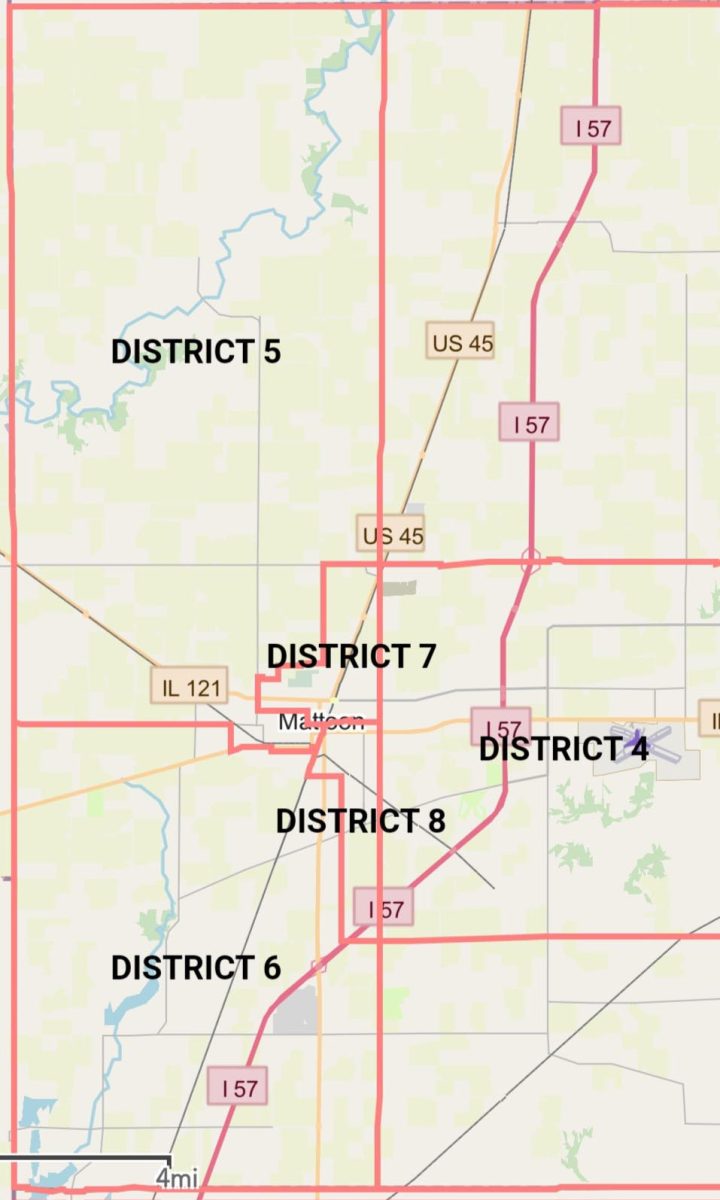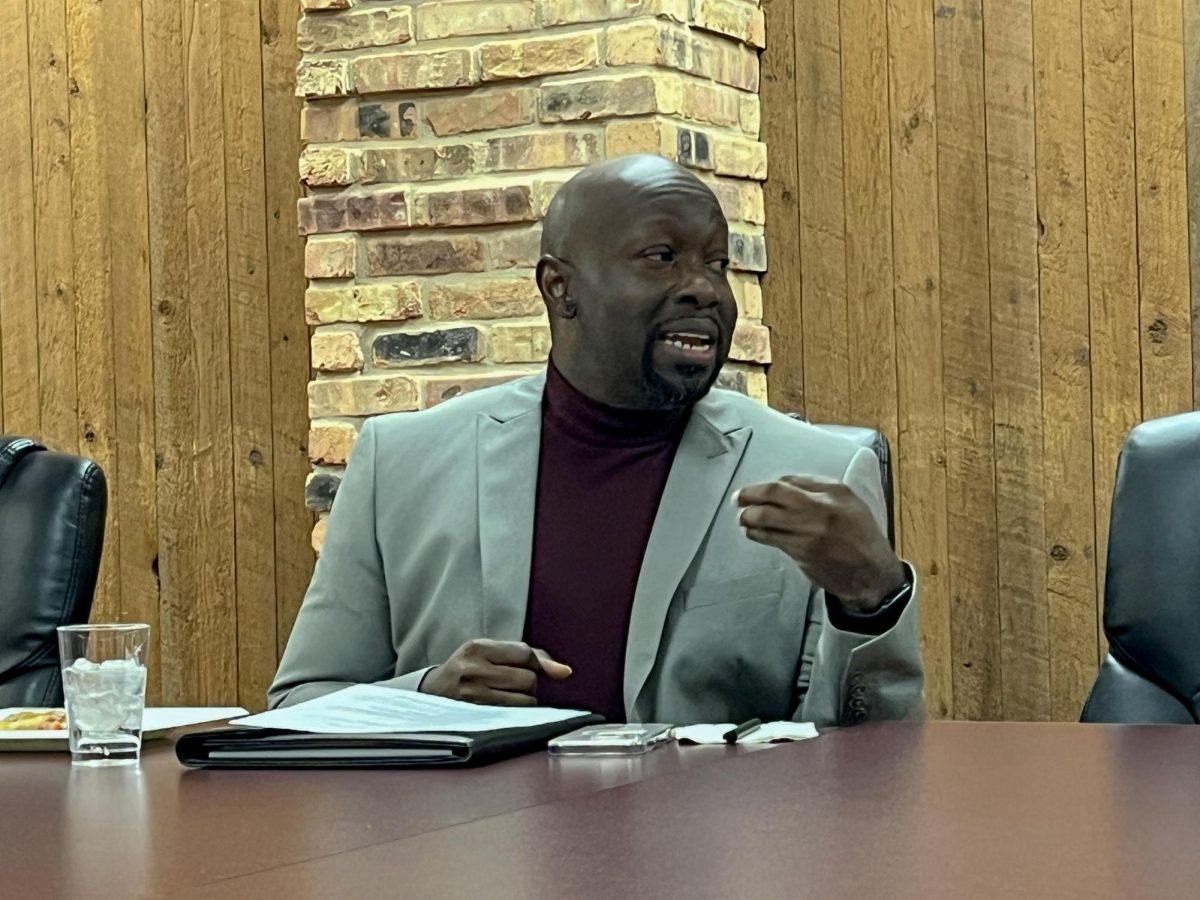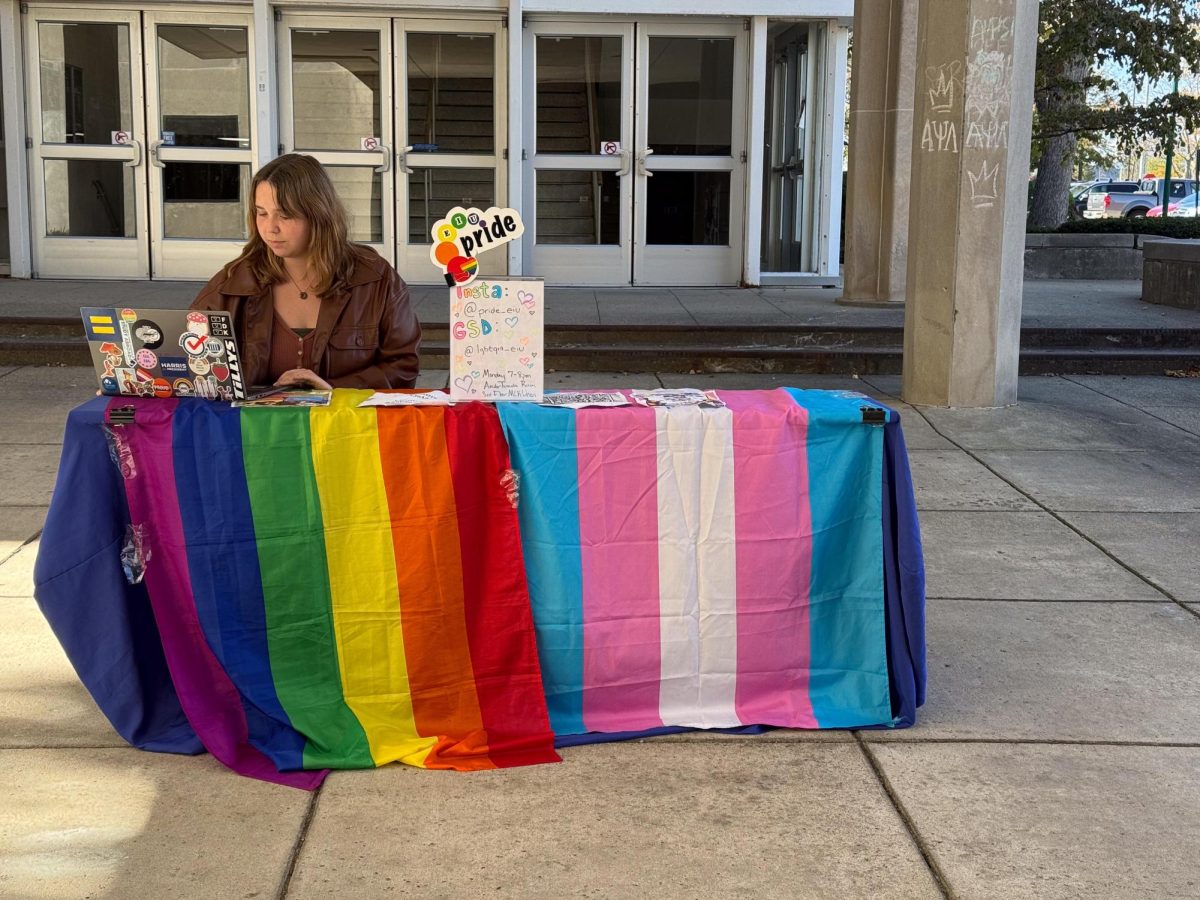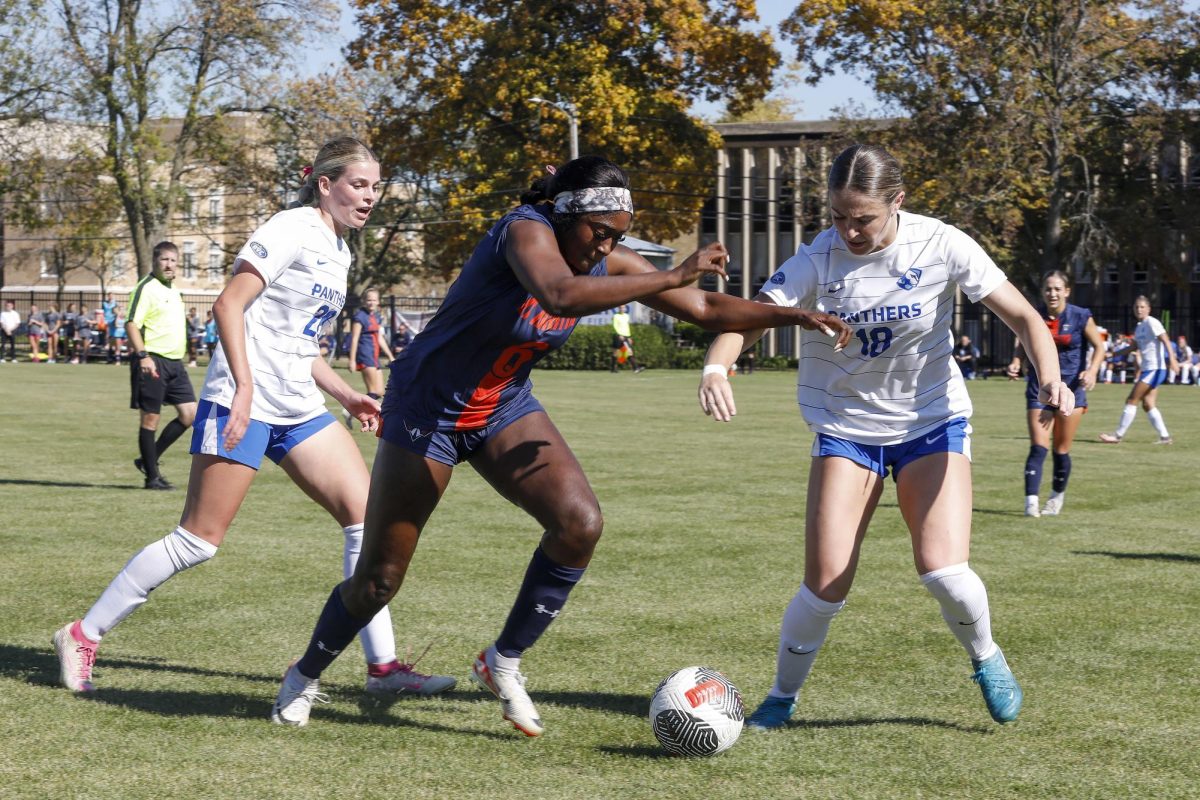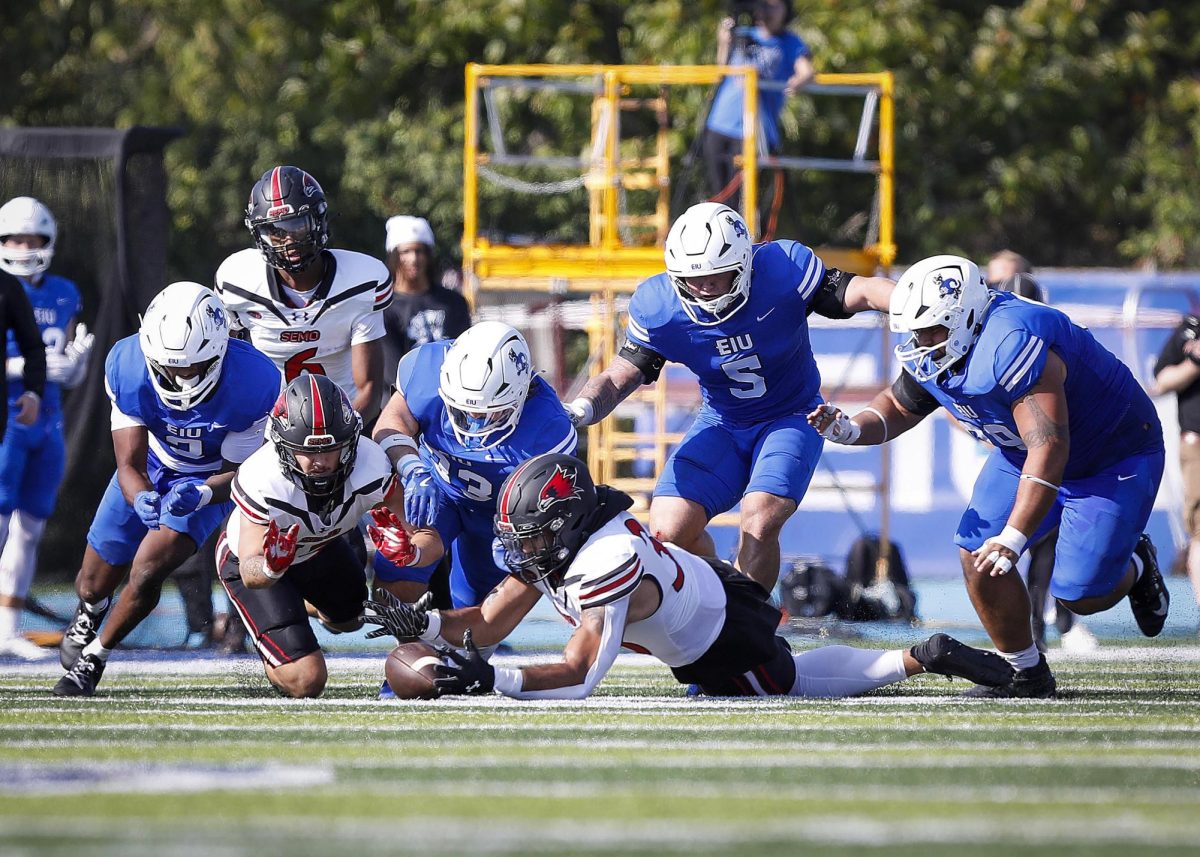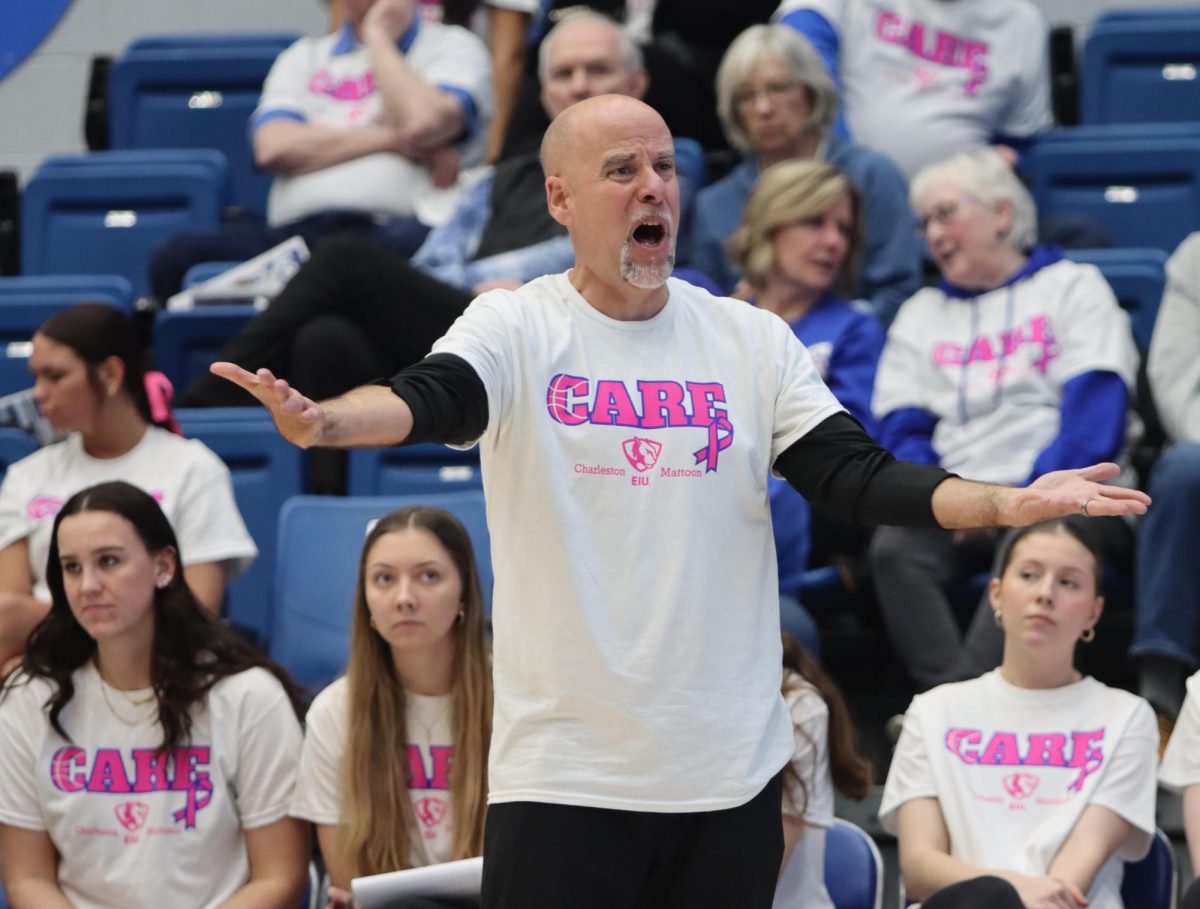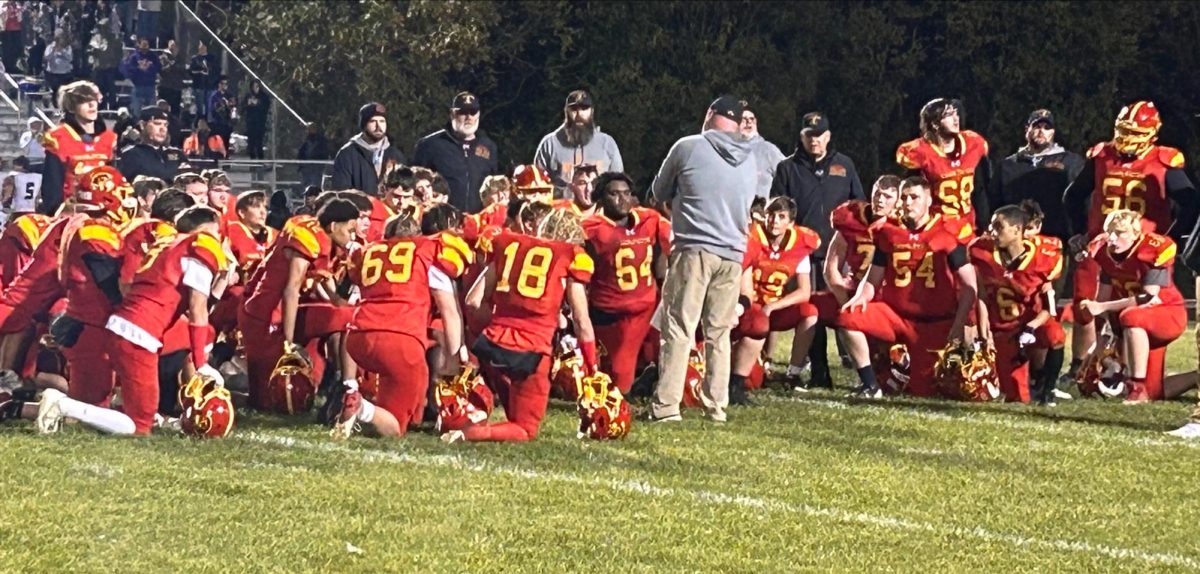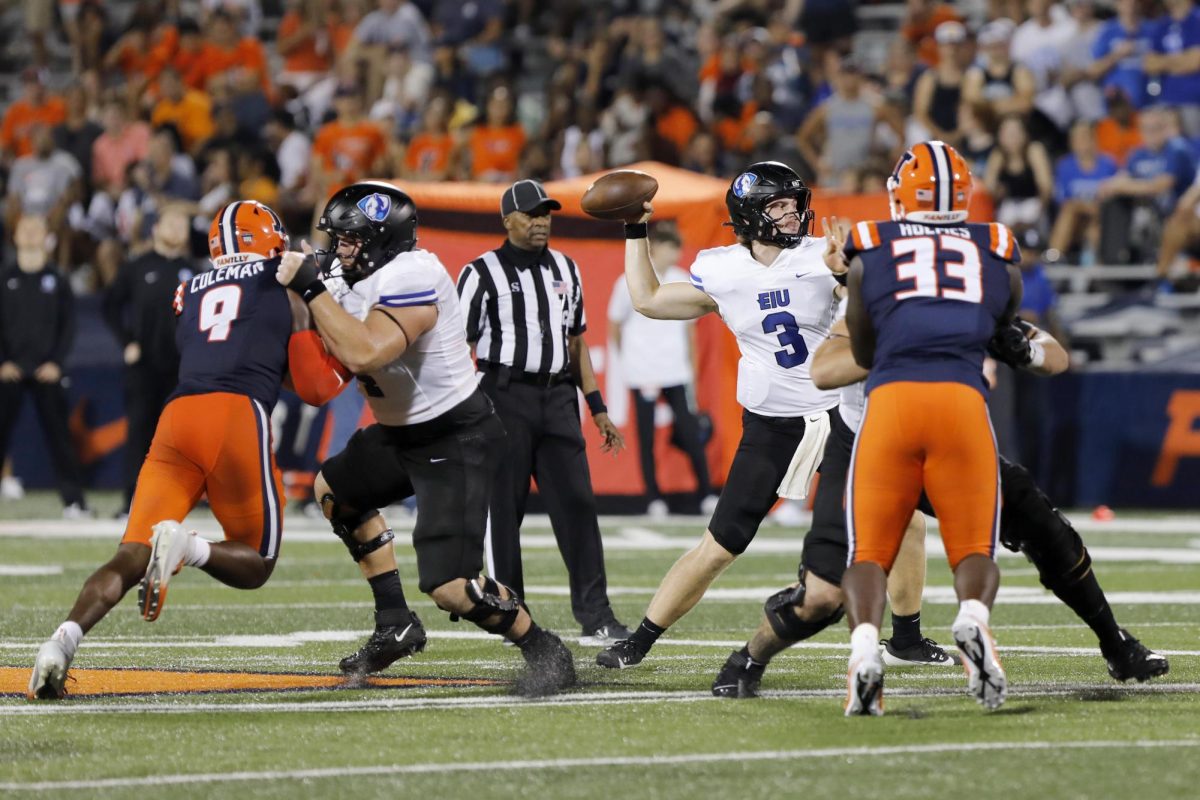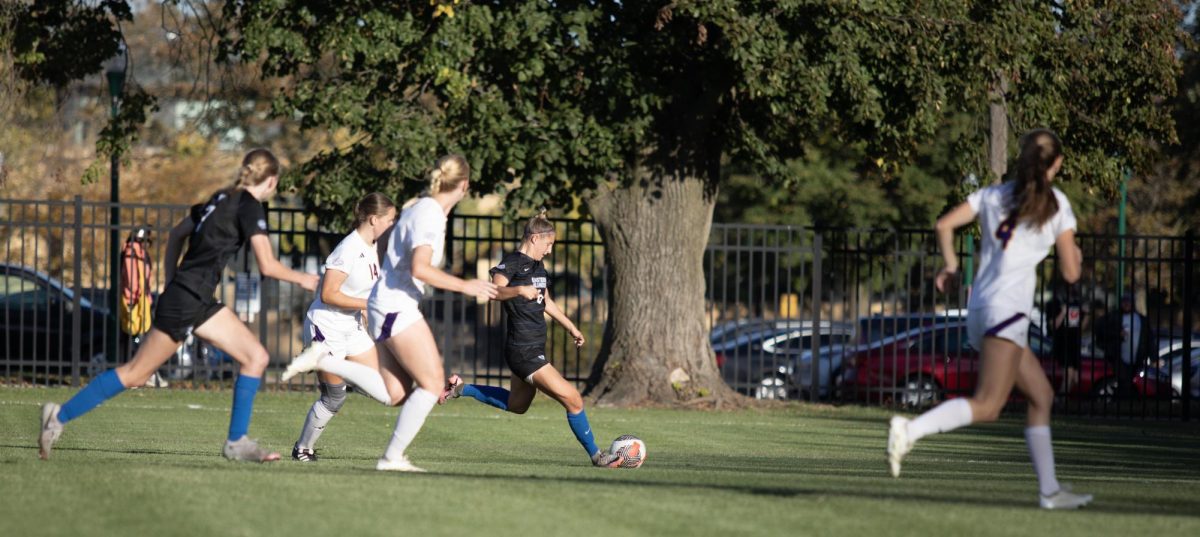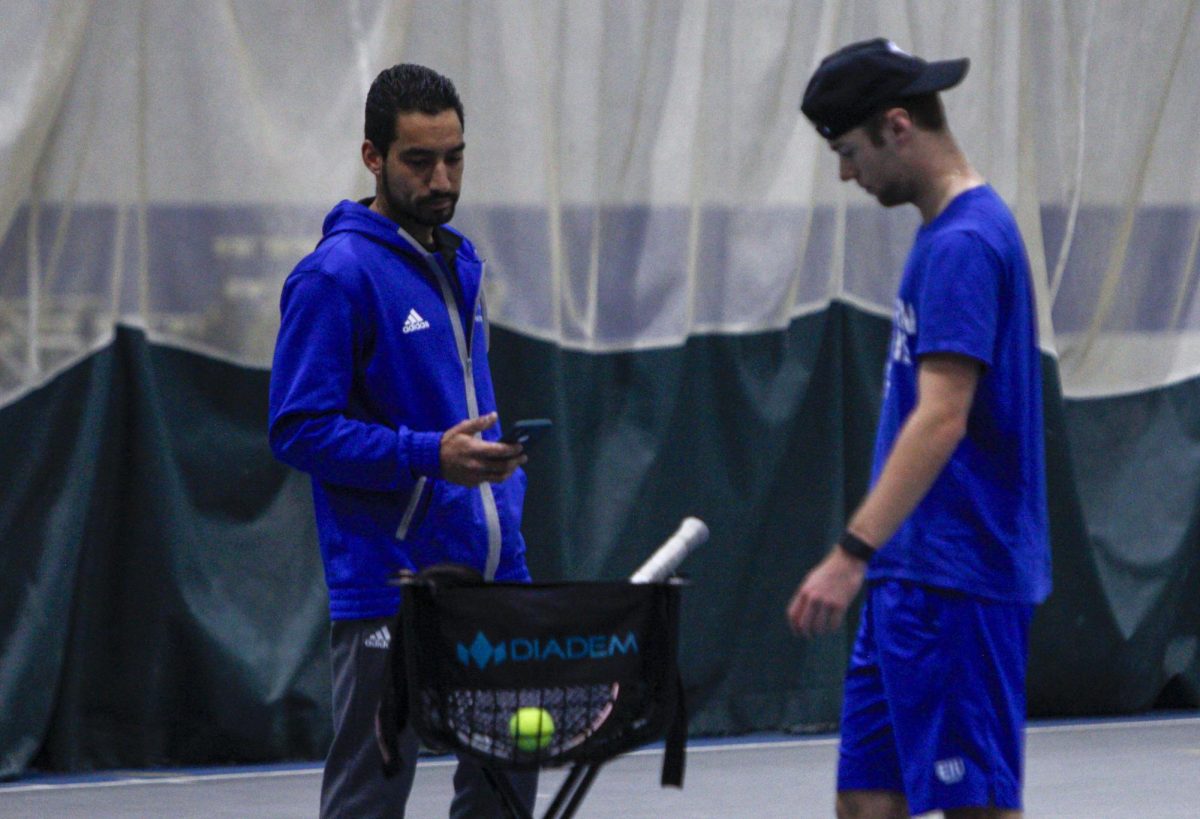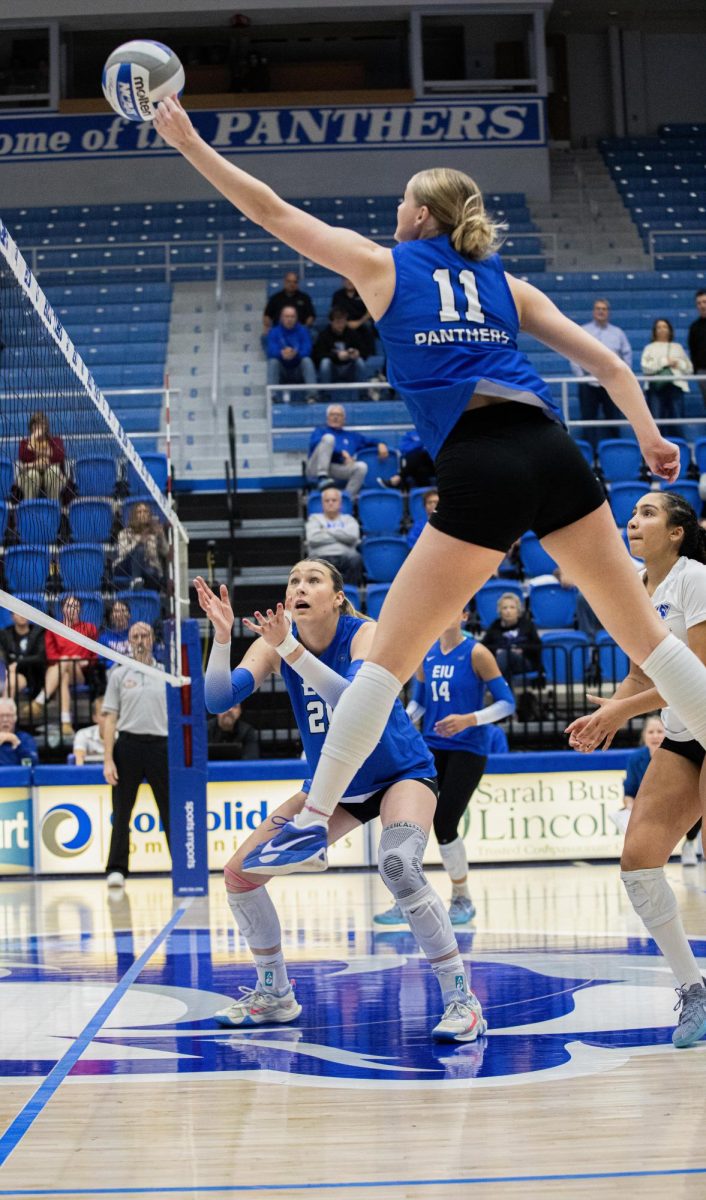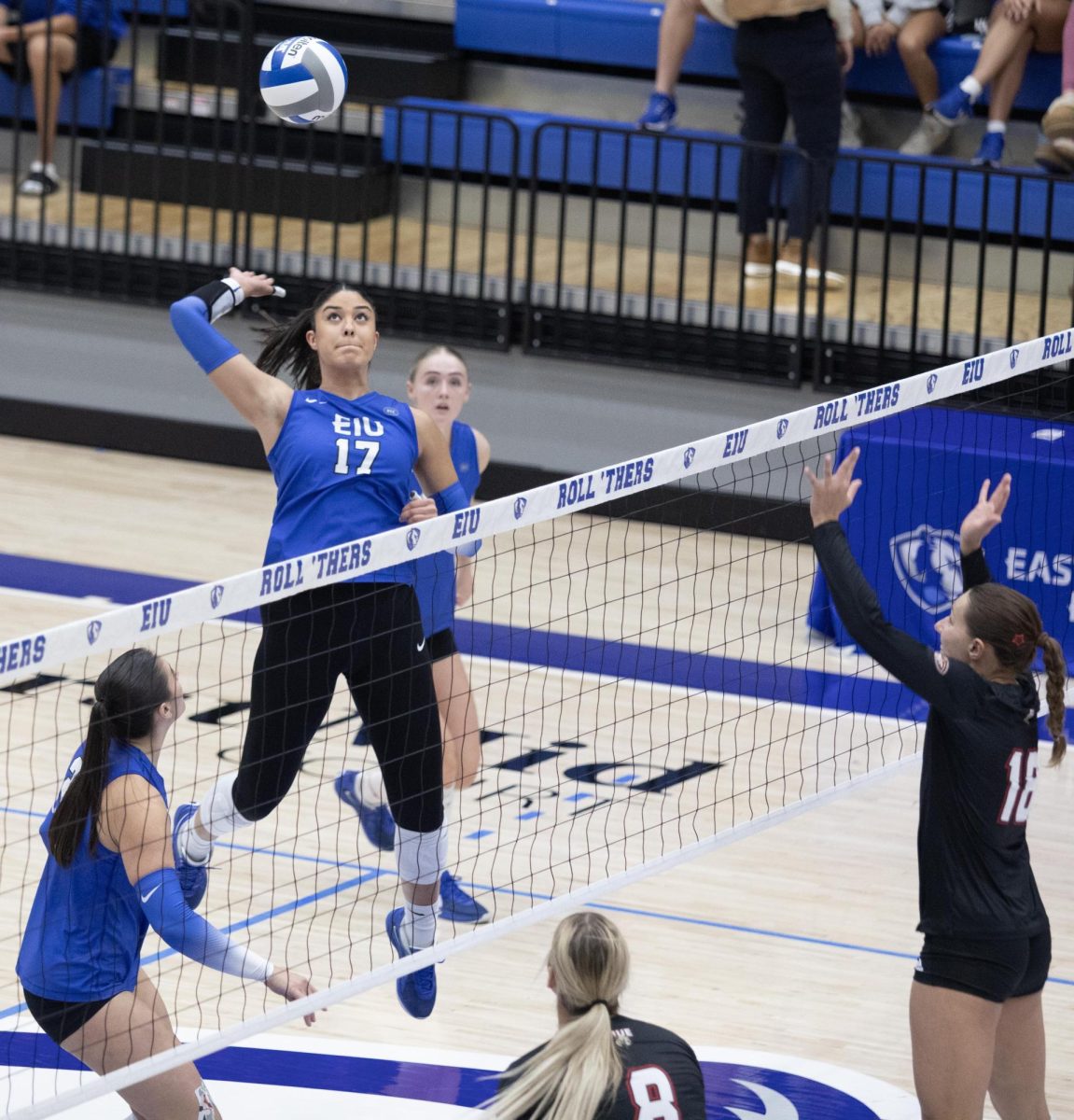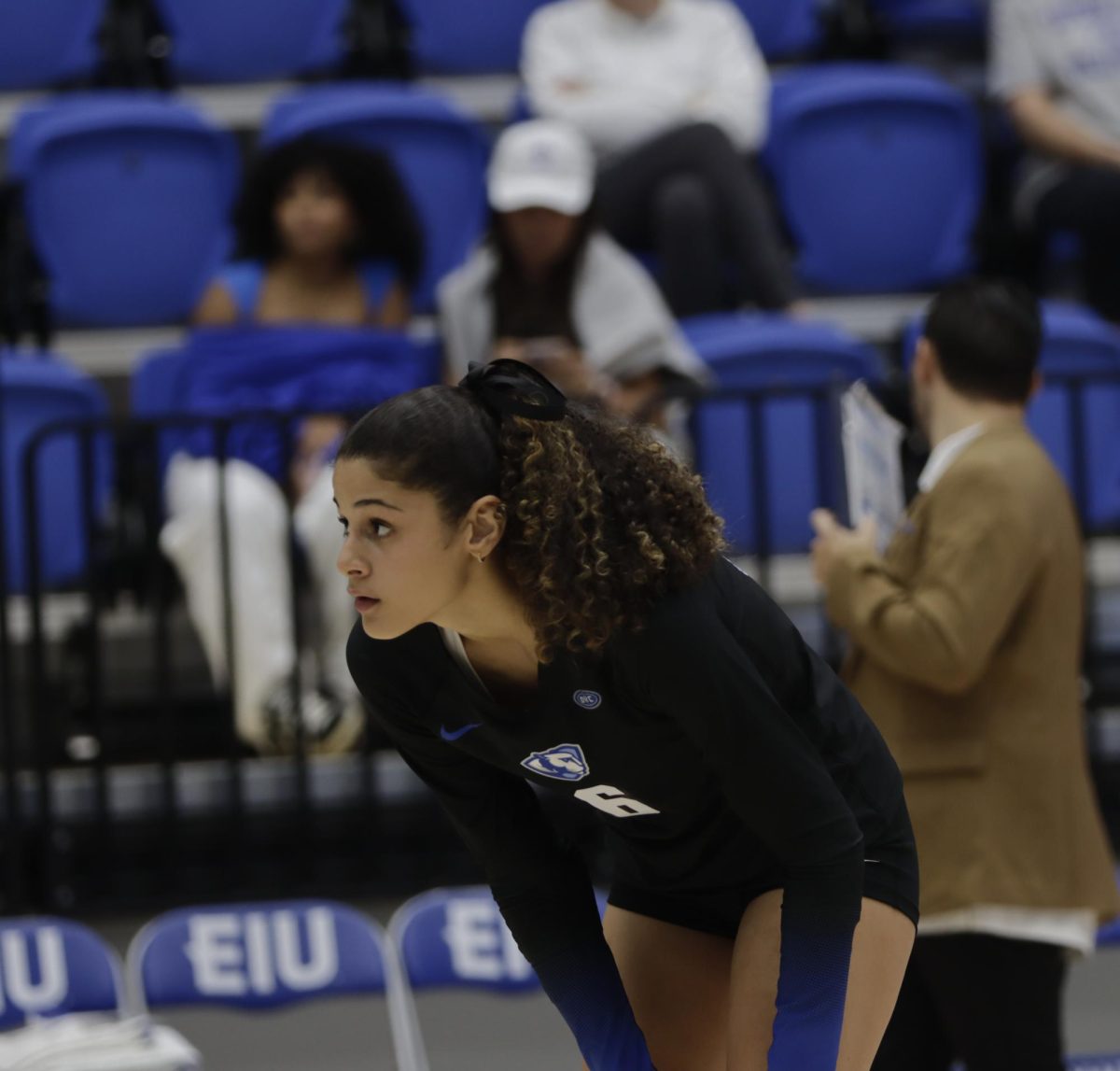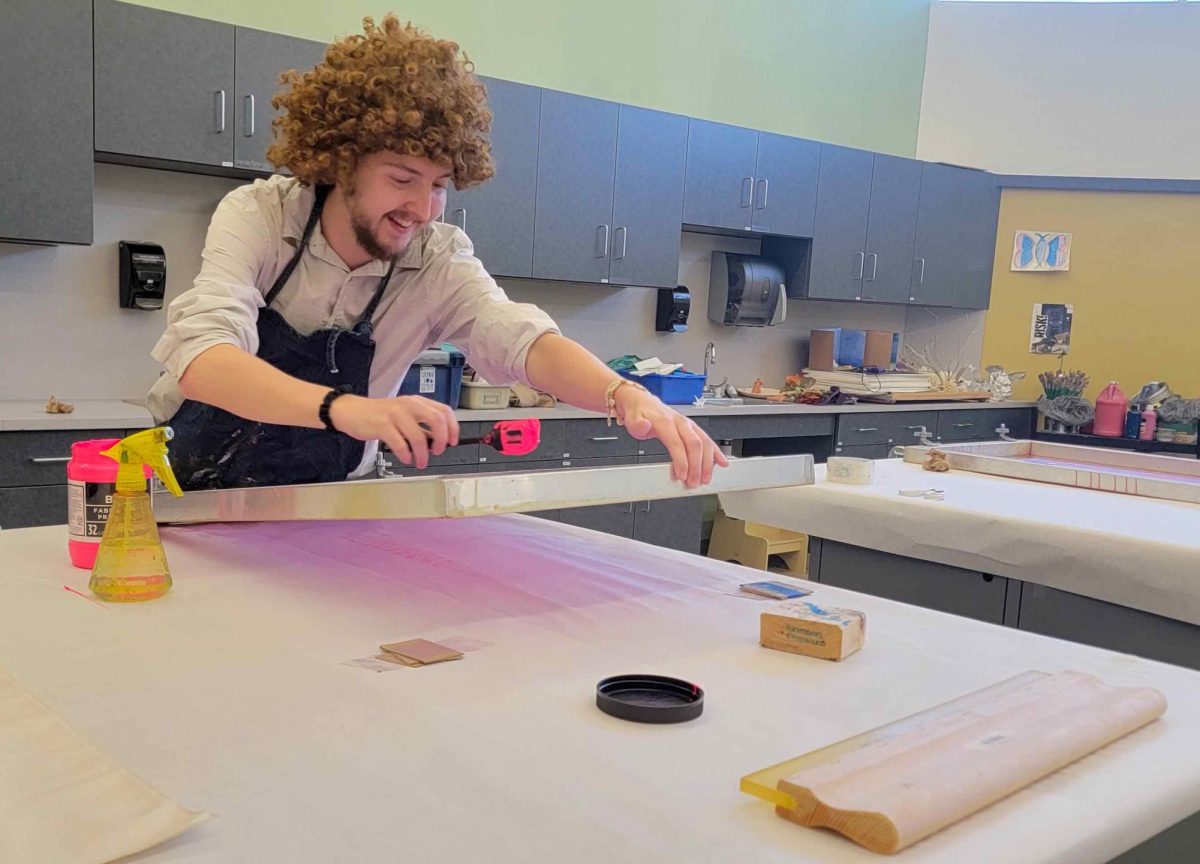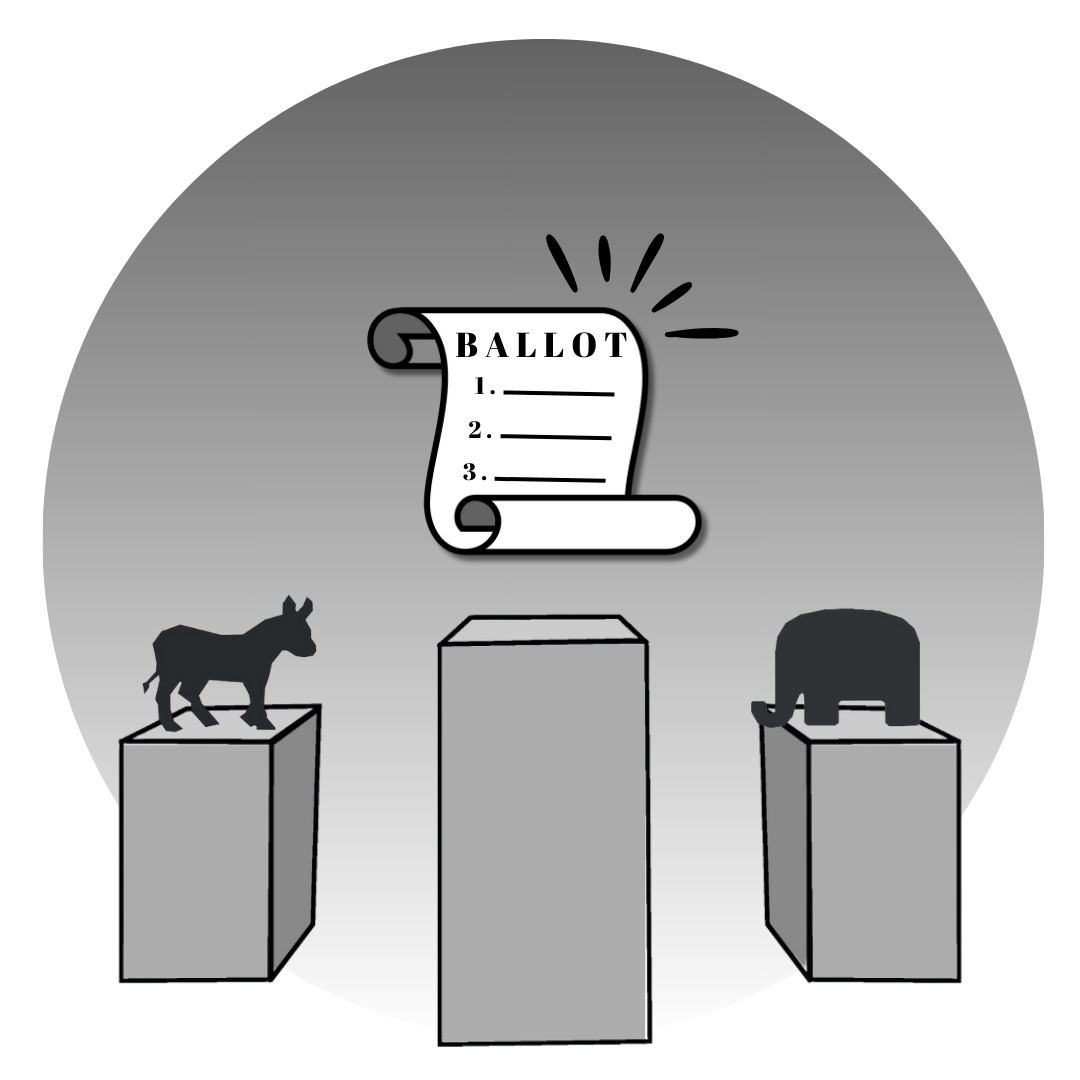Interim positions caused by budget impasse, vacancies in departments
November 16, 2017
Because of the recently-ended budget crisis and the need for individuals to fill positions quickly, Eastern has a number of administrators currently serving on an interim basis.
Being interim means that the university has only done an internal search for the position, and the person in it is not in the position permanently.
While it is not uncommon for universities to have employees serving on an interim basis, Eastern President David Glassman said Eastern has more than the usual number.
“That’s because of individuals who have left the university for other jobs because of the budgetary impasse,” he said.
People had to be put into the vacant positions quickly, leading to the number of interims.
In other cases, it has been retirements that have led to vacancies, which are then filled with interims.
Three out of the four colleges — Arts and Humanities, Sciences and College of Educational and Professional Studies — have interim deans.
Two out of the three vice president positions —in student affairs and business affairs —are considered interim as well.
Glassman said a lot of the interim positions have been happening in the last two years.
“Before that, time wasn’t an issue of interim positions,” he said. “Now that the impasse is over, we now have to revert to what was normal.”
In the president’s area, he is hoping to make the Area Title 9 civil rights coordinator a permanent position.
In the future, Glassman said he wants the administration to start looking at filling some dean positions and the current interim director of admissions position with permanent staff members.
“We have to look at all these other areas and certainly prioritize positions we’re going to do first,” Glassman said. “The ultimate goal over the next couple years is get permanent people in permanent managerial ranks and move ourselves forward.”
The administration plans on looking internally as well as externally to fill these permanent positions.
“We do have the possibility (in) certain conditions for individuals to just be transitioned from interim to permanent,” Glassman said. “It will be an informed decision based on the department they’re in and the vice president they report to and also the constituents that they work for.”
These changes will not come all at once. Glassman said he plans to make these transitions from interim to permanent positions over the next couple of years.
“You have to do it strategically … but we’ve got to start doing it now,” he said.
Having a budget in place from the state of Illinois can help this happen.
“Now, we’ve got something that’s predictable, we sure hope that’s sustainable,” he said. “For the last couple years (during the budget impasse) when we were not sure what we’ll get, it made it real hard to plan. Now that we have a budget, we can make those decisions and start that process going.”
There are several reasons someone might be an interim for a while as opposed to getting a permanent position.
Paul McCann, interim vice president for business affairs, said there is a cost for doing national searches, including the price of advertising open positions.
“At times it doesn’t make sense to do that,” he said. “ It might also not make sense because you have somebody who would have no knowledge of what’s currently going on trying to maintain some institutional knowledge.”
In some cases, employees in interim positions are less likely to make decisions, as they are trying to maintain the department instead of trying to grow or change it, McCann said.
Glassman said there are “certainly savings” by having somebody serve on an interim position, but said he does not know the exact cost savings.
“It’s allowed us to make some transitions very, very quickly,” he said.
However, Glassman said what the university needs is to have permanent individuals in these positions.
“You have the continuity, most often more levels of experience being brought into the position,” Glassman said. “They can go into it all in.”
Glassman said a permanent position gives people more flexibility and authority to make changes.
“Often times when (a person) is interim they’re just managing the area, not necessarily creating a new vision,” he said. “When you are a permanent person in a managerial position, you’re not just managing the area, you’re also making decisions for it to improve and develop and be enhanced.”
The Office of Admissions has had some turnover in leadership for a couple of years.
Kelly Miller, now interim director of admissions, came from Housing and Dining, where she was associate director. She accepted the interim position after Glassman and then-Provost Blair Lord asked her if she was interested.
It was originally a yearlong appointment, but then Lord asked if she wanted to stay for another year.
“I think I’ve approached it not like a short-term thing,” she said. “This place and what we do means a lot to me. I couldn’t think of it as short-term. That’s not how you make progress.”
Miller had been cautioned before taking the job that people taking interim positions have a hard time getting staff to listen, but this has not been the case for her.
“I have been able to fill vacant positions with good people,” she said. “Even though I’m technically interim, I haven’t felt that difference.”
Still, Miller is hesitant to use the “interim” label when talking to and emailing parents and prospective students.
When she started as interim admissions director, there were “false rumors” that the university might close, Miller said.
“If there’s some of that talk already, and everyone you meet has interim in front of title, it might lead people to believe there’s some credence (in the rumors),” she said. “If there were concerns out there about university I don’t want to feed into that.”
However, Miller said she has not heard concerns about the interim positions from parents.
She said her own interim position has started to feel more permanent to her.
“I feel at home here. We’ve built a family, team bond,” she said. “Hopefully, I’m here for a while.”
Though she does not have a permanent position, Miller said she has never felt like her livelihood is in danger, or like she is not going to be well taken care of.
Douglas Klarup, interim dean of the College of Sciences, started in his position in January 2016.
Before Klarup, there was another interim dean, Mary Anne Hanner, who stepped in for two months after the resignation of former dean W. Harold Ornes.
He saw being interim dean as a way to serve since “the university was undergoing and is undergoing some stress points.”
“This was a way to serve and (get the university through to) more normal times,” Klarup said.
However, Klarup did not expect to serve as interim dean for this length of time.
He said it is still possible as interim to plan for the longer term by working with the chairs in the college, but planning in general has been disrupted because of the budget impasse.
“Given the lack of resources, I think my goal in taking the job was to sort of even out and smooth the processes across the college,” Klarup said.
Being an interim dean, he still said it might be hard to make large-scale changes, as they do not have the extended time a permanent dean would to do so.
“We’re keeping the college functioning, keeping students taught,” he said. “I feel that given the situation we’re under, we’ve managed to do mostly what we have wanted to do in (these) circumstances.”



